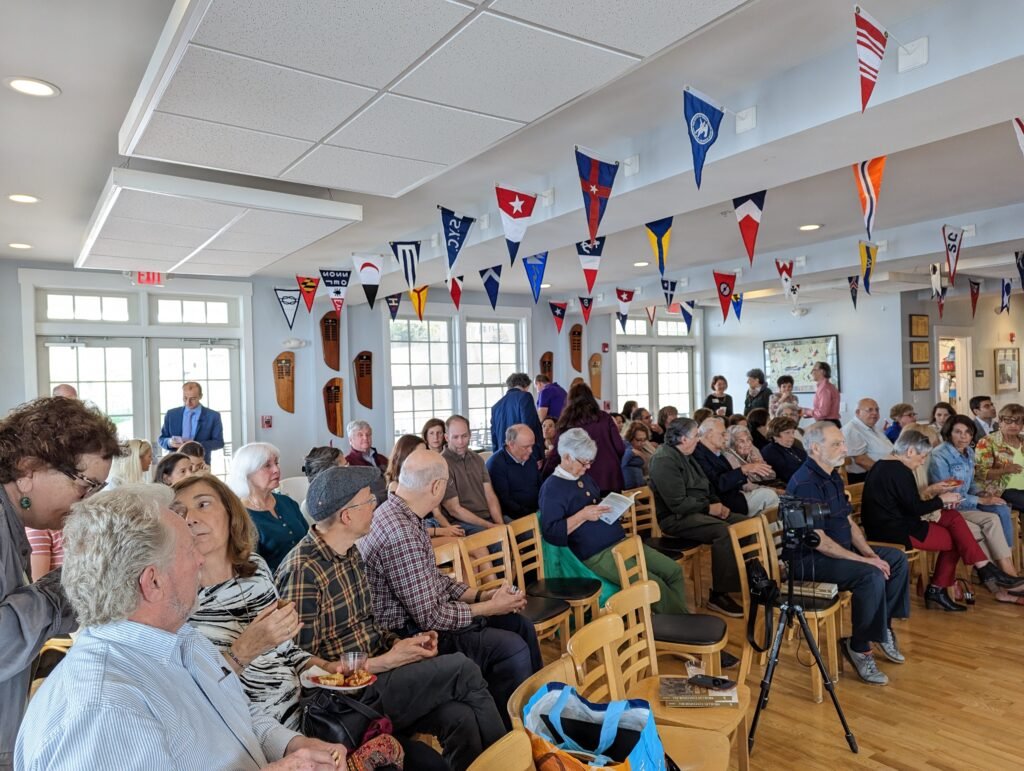
CRANSTON, R.I.—The historic Edgewood Yacht Club at the head of Narragansett Bay in Rhode Island was the setting for an afternoon with Dr. Khatchig Mouradian. Hosted by the Armenian Historical Association of Rhode Island (AHARI), the event drew a capacity crowd of about 90 guests. Guests were treated to tables full of Armenian delicacies as well as Zulal Armenian wines.

AHARI chairperson Martha Jamgochian welcomed everyone, and membership coordinator Anna-Marie Martirosian introduced Dr. Mouradian, who is the Armenian and Georgian Area Specialist at the Library of Congress and a lecturer in Middle Eastern, South Asian, and African Studies at Columbia University. He also serves as co-principal investigator of the project on Armenian Genocide denial at the Global Institute for Advanced Studies at New York University.
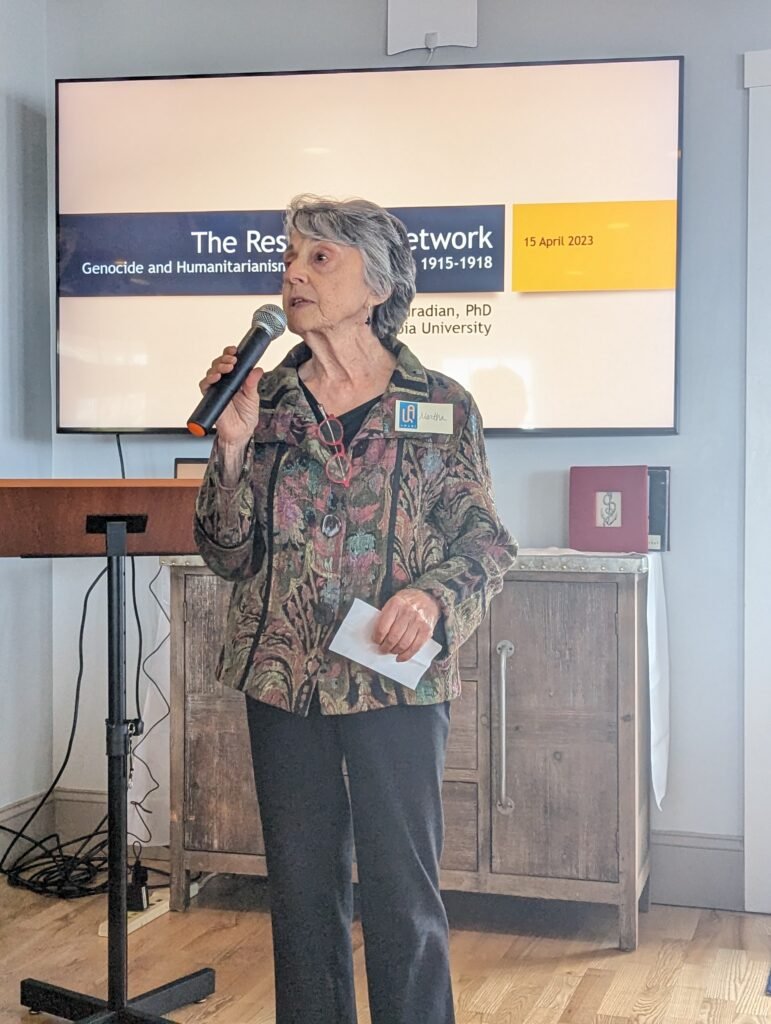
Dr. Mouradian took the audience on his journey from researching the “darkest corner of the Armenian Genocide, which is Syria in 1915-1916” for his dissertation to his resulting book The Resistance Network, which “is not just about genocide, mass violence, crimes…but…about resilience; this is also about resistance and revival.”
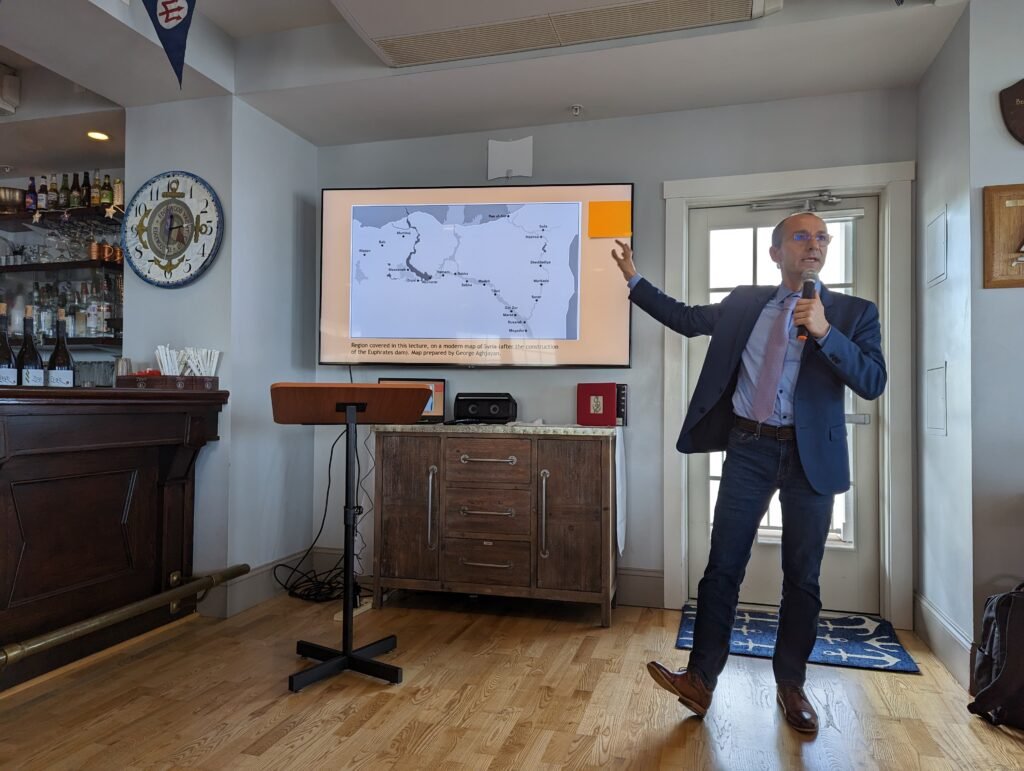
As Dr. Mouradian conducted his research, the stories of heroic Armenians who resisted efforts to extinguish the entire population “without firing a single shot” emerged. He began with the committees that were formed in the churches of Aleppo and their efforts to assist the deportees who were arriving daily from the villages and proceeded to some of the individuals whose efforts resulted in thousands of lives being saved.
Dr. Mouradian explained that the committees in Aleppo kept meticulous records of their meetings and expenses related to providing the deportees with their basic needs. Through the Prelacy archives, he found ledgers and minutes of meetings detailing the committees’ efforts. “Similar campaigns were taking place in all three churches. And this was a tremendous effort that was just shocking to me,” said Dr. Mouradian. While many of us knew about the campaigns in this country to help the deportees through Near East Relief, Mouradian said that this is only part of the story. “In fact, the brunt of the work, the most dangerous component of the job was conducted by Armenians themselves,” he said, explaining that these people served as the intermediaries between the western missionaries and diplomats.
As the Ottoman Turkish government was completing its planned deportations, Dr. Mouradian said they turned their attention to what was being done in Syria, in particular Aleppo, to help the deportees. This led to the arrests and killings of the leaders of the committees. Then, the groups moved their operations underground and continued operating secretly.
“So I started this journey wanting to write about one of the darkest corners of the Armenian Genocide, and what emerged was one of the brightest spots of the Armenian experience,” shared Mouradian. This led to his renaming the book The Resistance Network just prior to publication to honor those who perished doing this critical work.
Dr. Mouradian also discussed the cover photo of the book, which features Nora Altounyan and Rev. Aharon Shirajian, who provided shelter to many thousands of orphans in the Genocide.
In an emotional surprise that drew gasps and applause from the audience, Dr. Mouradian revealed the presence of Rev. Shirajian’s 99-year-old daughter Aranoush and her children in the front row. During the pandemic, Dr. Mouradian spoke with Aranoush over Zoom, during which she promptly asked, “Where did you get that picture [the cover photo]? I have it hanging on my wall!” As they conversed, Dr. Mouradian wanted to learn more about Rev. Shirajian as a father. Strikingly, most of her memories are of her father having to leave. “They would be seated for dinner at home,” recalled Dr. Mouradian, “and there would be a knock on the door, and her father would have to leave.”
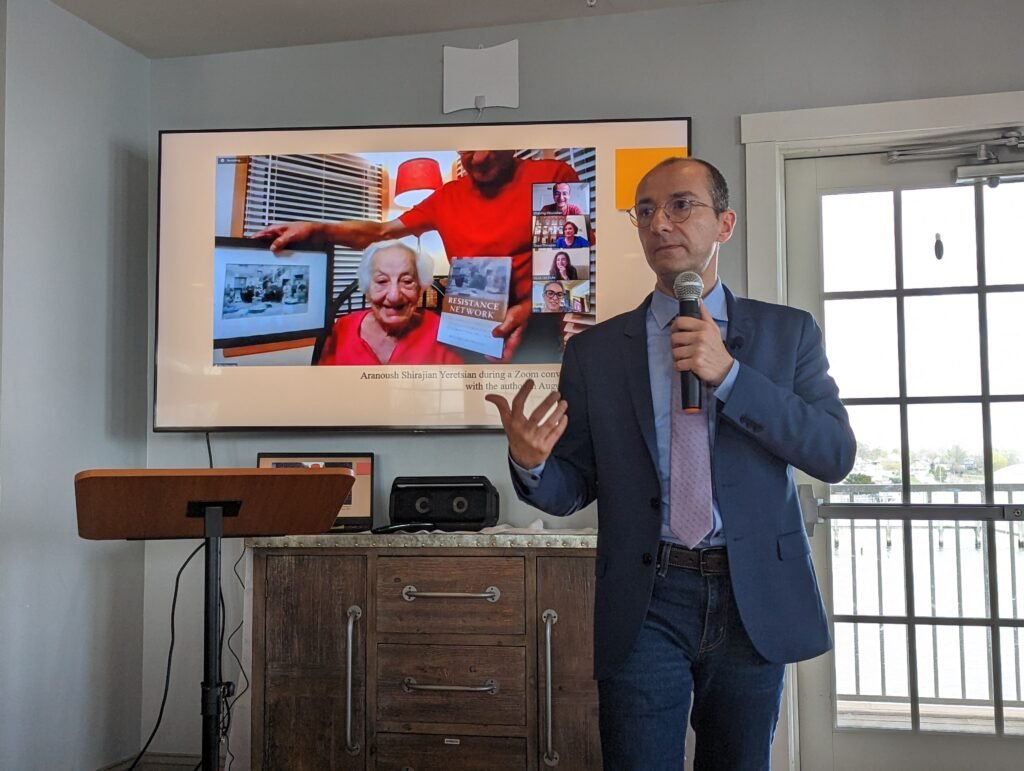
“Having in the audience the daughter of one of the key figures of the resistance network was a powerful symbol of the temporal and physical proximity of the Genocide to Armenian communities,” Dr. Mouradian later told the Weekly. “It was also a living reminder of the resilience and resistance of the Armenian nation–much needed attributes today.”
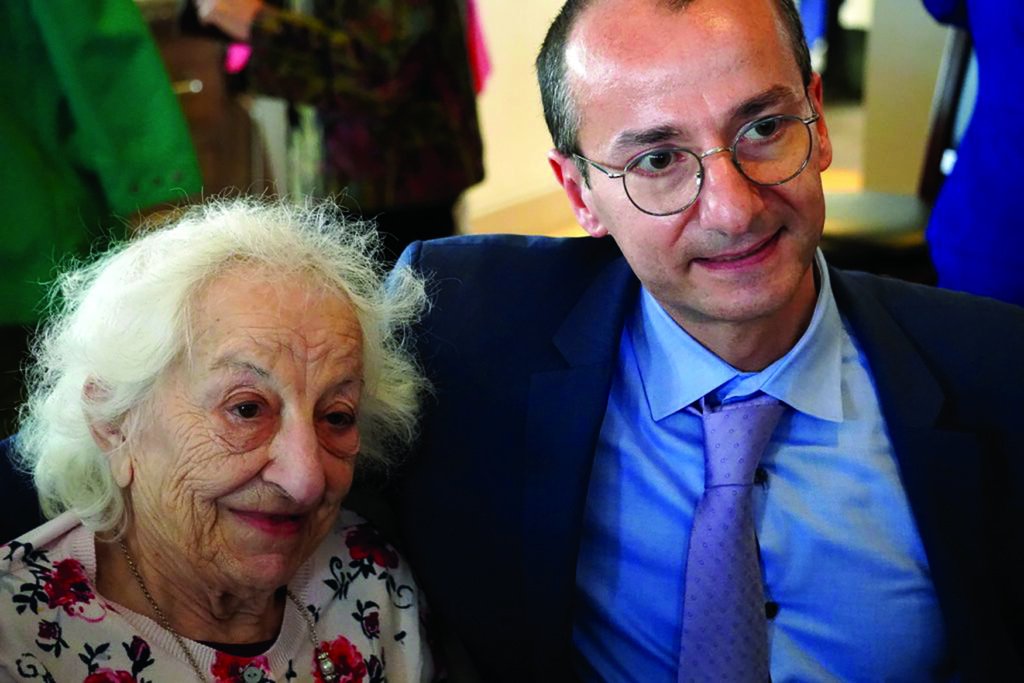
The final chapter of Dr. Mouradian’s book opens with the poem “Remember Me” by Mushegh Ishkhan who became a prominent writer, teacher, educator and poet. Translated by Dr. Mouradian, it is worth noting here:
You do not know me…
I am that child, raised with love,
Who, exhausted and half-nude,
Fell asleep in the desert of Der Zor
To never wake up.
…I do not want adornments
nor any warm, woolen clothes;
Skeletons are always nude.
But when you get warm bread from the baker,
Make sure to remember me.
In his conclusion, Dr. Mouradian referenced the hundreds of thousands of Armenians who were massacred during the summer of 1916 in “the Auschwitz of the Armenian Genocide in Der Zor,” while many others were being saved through the efforts of the resistance. Those who survived through their efforts, our great-grandparents and grandparents, are the reason many of us are here today.
“We are in the most difficult period in modern Armenian history since the Armenian Genocide and the early years of the Armenian Republic,” Dr. Mouradian said. More than 100 years ago, “the Armenian people were subjected to genocide, but they survived, they resisted, they were able to establish the homeland, the republic and they were able to revive their communities in the aftermath of the Genocide. We may feel depressed and horrified by what is happening in Armenia and Artsakh or in general in the Armenian reality today. It would be worth reminding ourselves that if they could do it back then, we can do it now,” he concluded.
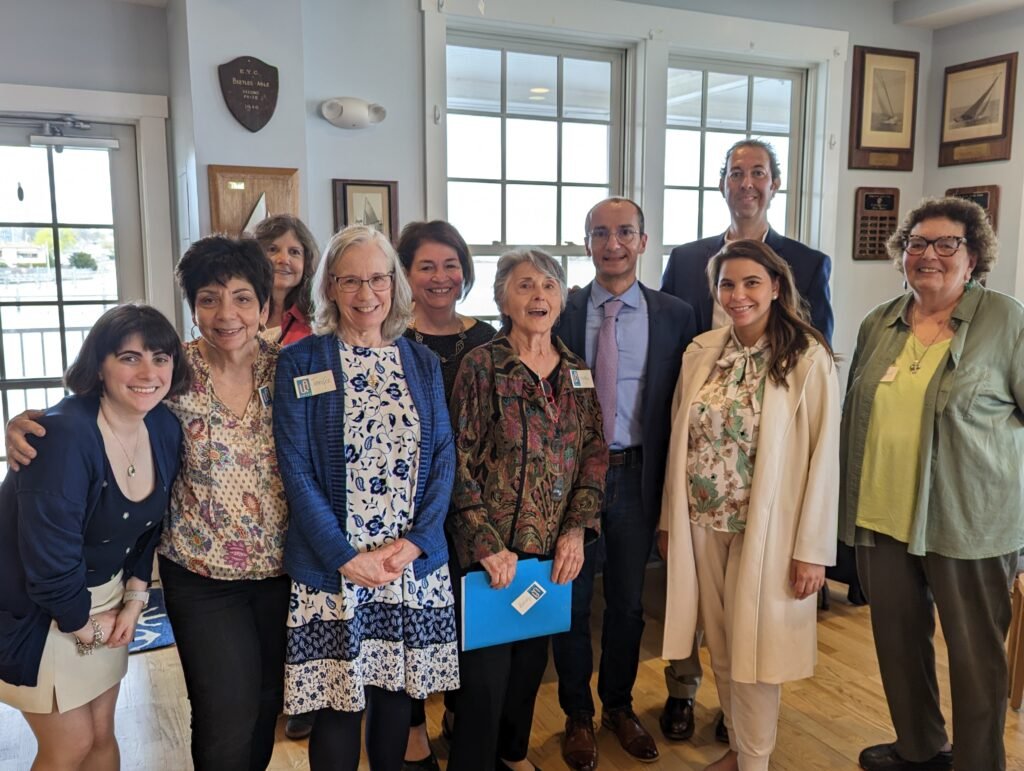


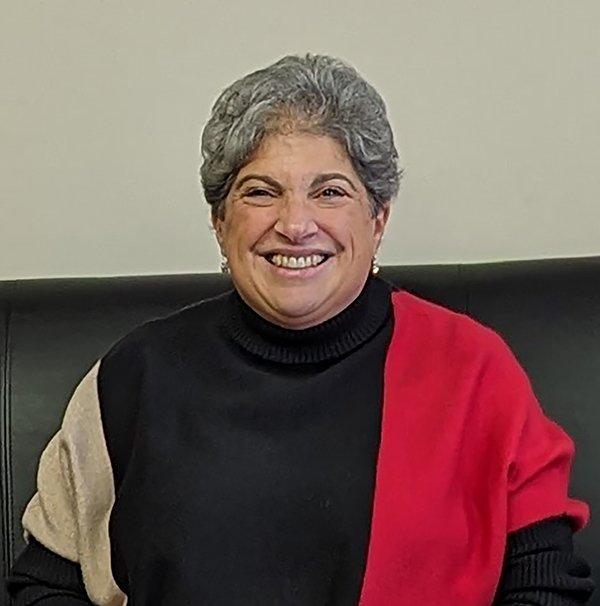
Be the first to comment